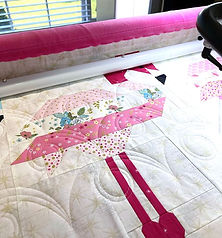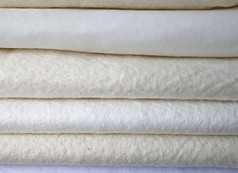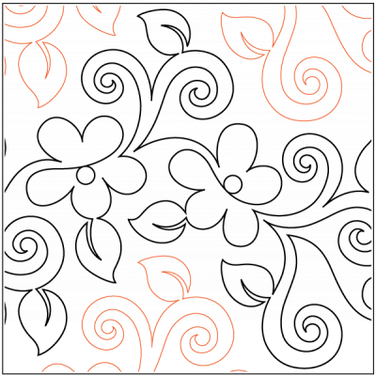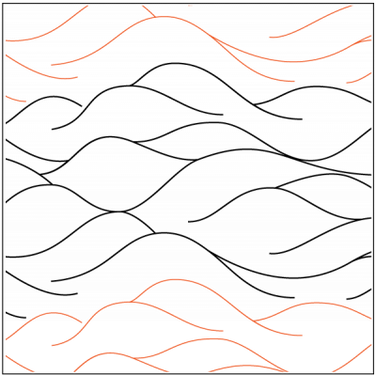Longarm Quilt Services
Located in Vancouver, WA

Digital Edge to Edge
The cost per square inch for Digital Edge to Edge (E2E) and one thread color through-out:
Basic (average) density: $0.025
Moderate/High(tight) density: $0.03
Not offering custom quilting at this time.

Thread
I use high-quality threads (Glide 100% Polyester Thread and Signature 100% cotton).
$1.75 per bobbin

Batting
I stock large rolls of 80/20 cotton/polyester batting (Warm & White) or you may send your own batting.
$0.45 per inch cut off roll
FIGURING OUT
Cost Estimates
Width x Length =
Square Inches.
Example:
Step 1: If your quilt is 60” wide and 60” long, multiply 60x60 to get 3,600 square inches.
Step 2: Multiply 3,600 x the price above to get your estimate:
(3,600 x $0.025 = $90) or
(3,600 x $0.03 = $108)
**I have a minimum charge of $50 for small quilts.
Preparing Your Quilt
For Longarm Quilting

Backing
Please have a minimum of 4 inches extra on all sides of the quilt due to the loading style of the machine. Measure your backing fabric with at least 8 inches wider and 8 inches longer than your quilt top (i.e., if your quilt top is 50” x 70”, then your backing needs to be 58” x 78” before I can work with it.)
Note: this also applies to batting if you provide.

Squaring the Quilt
The quilt top and back must be square or it will load improperly on the frame and the quilting will not be square to the quilt. You can find information on-line for how to square up your quilt. Mark the top of the quilt with a safety pin and post-it-note. Do this for both the quilt top and the backing if your quilt is directional.

Loose Threads
Clip loose threads on the front AND back of the quilt. You do not want contrasting threads showing through your quilt top. Also, check for loose seams. They can be caught on the machine while quilting. If you have a seam that has pulled apart, the hopping foot can catch on it and rip your quilt.

Pressing
Pressing your quilt is especially important. Press all seams flat. Having a nicely pressed top and back will prevent wrinkles being quilted into your quilt.

Applique
If your quilt top has applique on it, please make sure it is secured well so the hopping foot does not catch on it.

Edges
If your outer edge has a lot of seams, you can run a straight or zigzag stitch (1/8”) on the outer edge to secure. It will prevent the seams from coming apart.
Adding Extra

Be sure to add 8” to both the width and length of your back and batting. This allows extra space for loading and clamping.

Selvages
Using the selvage edge in your quilt back seam will cause a tightness that has no give. Always remove the selvage edge when piecing your back.

Separate Pieces
I need the top, backing, and batting to be brought as separate pieces. Please do not baste them together.
Quilt Patterns
Below is a sample of quilt patterns I offer. Contact for more options. If you don't see what you want, I'm willing to split the purchase of a design of your choice.



























